#keisha blain
Explore tagged Tumblr posts
Text
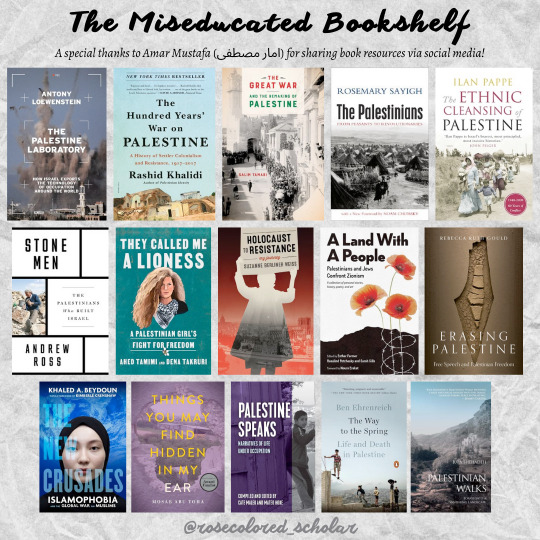
To better upRoot our miseducation about settler-colonialism, antisemitism, islamophobia, apartheid, and the growing military industrial complex, here are a few urgent and timely reading recommendations from your friendly neighborhood historian (books with ** are my padawan picks)
Books on Muslim Identities & Solidarities:
Islamophobia and the Politics of Empire: Twenty Years After 9/11 | Deepa Kumar **
The New Crusades: Islamophobia and the Global War on Muslims | Khaled A. Beydoun
Tolerance and Risk: How U.S. Liberalism Racializes Muslims | Mitra Rastegar **
The Muslims Are Coming: Islamophobia, Extremism, and the Domestic War on Terror | Arun Kundnani **
Things You May Find Hidden in My Ear: Poems from Gaza | Mosab Abu Toha **
The Way to the Spring: Life and Death in Palestine | Ben Ehrenreich
Erasing Palestine: Free Speech and Palestinian Freedom | Rebecca Gould **
Books on Jewish Identities & Religious Imperialism:
Holocaust to Resistance, My Journey | Suzanne Berliner Weiss **
A Land with a People: Palestinians and Jews Confront Zionism
Ten Myths about Israel | Ilan Pappe **
Voices from the Warsaw Ghetto: Writing Our History
Whatever Happened to Antisemitism?: Redefinition and the Myth of the 'Collective Jew' | Antony Lerman **
Books on the Histories & Afterlives of Palestine:
The Palestinians | Rosemary Sayigh
The Balfour Declaration: Empire, the Mandate and Resistance in Palestine | Bernard Regan **
The Hundred Years' War on Palestine: A History of Settler Colonialism and Resistance, 1917-2017 | Rashid Khalidi **
The Great War and the Remaking of Palestine | Salim Tamari
The Ethnic Cleansing of Palestine | Ilan Pappe **
Stone Men: The Palestinians Who Built Israel | Andrew Ross **
Gaza Under Hamas: From Islamic Democracy to Islamist Governance | Bjorn Brenner
The Biggest Prison on Earth: A History of the Occupied Territories | Ilan Pappe
The Battle for Justice in Palestine | Ali Abunimah
In Search of the River Jordan: A Story of Palestine, Israel and the Struggle for Water | James Fergusson **
Books on Queer Liberation & Apartheid:
Queer Palestine and the Empire of Critique | Sa'ed Atshan **
We Have Always Been Here: A Queer Muslim Memoir | Samra Habib **
Terrorist Assemblages: Homonationalism in Queer Times | Jasbir K. Puar
Exile and Pride: Disability, Queerness, and Liberation | Eli Clare
Books for Young Readers & Growing Families on Palestine, Apartheid, and Racism:
Young Palestinians Speak: Living Under Occupation **
You Are The Color **
The 1619 Project: Born on the Water **
A Little Piece of Ground
Wishing Upon the Same Stars **
The Shepherd's Granddaughter **
They Called Me a Lioness: A Palestinian Girl's Fight for Freedom **
A Long Way Gone: Memoirs of a Boy Soldier **
We Are Displaced: My Journey and Stories from Refugee Girls Around the World **
Books for upRooting Political & Academic Imperialism
Except for Palestine: The Limits of Progressive Politics | Marc Lamont Hill + Mitchell Plitnick **
Tolerance Is a Wasteland: Palestine and the Culture of Denial | Saree Makdisi
The Palestine Laboratory: How Israel Exports the Technology of Occupation Around the World | Antony Loewenstein **
We Are Not One: A History of America's Fight Over Israel | Eric Alterman **
Beyond Occupation: Apartheid, Colonialism and International Law in the Occupied Palestinian Territories | Virginia Tilley
Set the World on Fire: Black Nationalist Women and the Global Struggle for Freedom | Keisha Blain
Beyond Walls and Cages: Prisons, Borders, and Global Crisis | Matt Mitchelson
Books for Decolonized Scholarship & Community Building:
The Wretched of the Earth | Franz Fanon **
Necropolitics | Achille Mbembe **
Freedom Is a Constant Struggle: Ferguson, Palestine, and the Foundations of a Movement | Angela Davis **
Captive Revolution: Palestinian Women's Anti-Colonial Struggle within the Israeli Prison System | Nahla Abdo **
Europe's Fault Lines: Racism and the Rise of the Right | Elizabeth Fekete
The New Age of Empire: How Racism and Colonialism Still Rule the World | Kehinde Andrews **
The Republic Shall Be Kept Clean: How Settler Colonial Violence Shaped Antileft Repression | Tariq D. Khan
Decolonial Marxism: Essays from the Pan-African Revolution | Walter Rodney
You can explore more decolonized book recs + history reads over on Neighborhood Historian or access deeper history lessons (and support these public resources + works) through my Patreon.
#books to read#solidarity with palestine against apartheid#black solidarity with palestine#free palestine#free us all#padawan historian#decolonize your bookshelf#the fire is here#our history is your history#book recommendations#resources for you#antiracist resources
40 notes
·
View notes
Text
Melanesia, Creoles, and Ideas of Blackness - AAIHS
How the colonizers disenfranchised the Black Indigenous People of the world, while solidifying whiteness.
8 notes
·
View notes
Photo



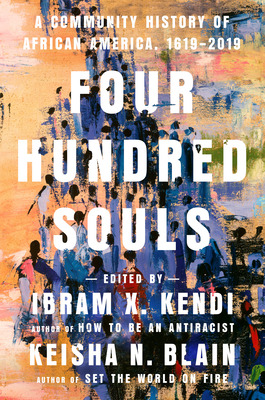
Juneteenth: Nonfiction Recommendations
On Juneteenth by Annette Gordon-Reed
Weaving together American history, dramatic family chronicle, and searing episodes of memoir, this volume provides a historian’s view of the country’s long road to Juneteenth, recounting both its origins in Texas and the enormous hardships that African-Americans have endured in the century since, from Reconstruction through Jim Crow and beyond. All too aware of the stories of cowboys, ranchers, and oilmen that have long dominated the lore of the Lone Star State, Gordon-Reed - herself a Texas native and the descendant of enslaved people brought to Texas as early as the 1820s - forges a new and profoundly truthful narrative of her home state.
A Slave No More by David W. Blight
Slave narratives are extremely rare, with only 55 post-Civil War narratives surviving. A mere handful are first-person accounts by slaves who ran away and freed themselves. Now two newly uncovered narratives join that exclusive group. Handed down through family and friends, they tell gripping stories of escape: Through a combination of intelligence, daring, and sheer luck, the men reached the protection of occupying Union troops. In the stories of Wallace Turnage and John Washington, we find portals that offer a rich new answer to the question of how four million people moved from slavery to freedom.
A Black Women’s History of the United States by Daina Ramey Berry
This volume reaches far beyond a single narrative to showcase Black women’s lives in all their fraught complexities. Berry and Gross prioritize many voices: enslaved women, freedwomen, religious leaders, artists, queer women, activists, and women who lived outside the law. The result is a starting point for exploring Black women’s history and a testament to the beauty, richness, rhythm, tragedy, heartbreak, rage, and enduring love that abounds in the spirit of Black women in communities throughout the nation.
Four Hundred Souls edited by Ibram X. Kendi & Keisha N. Blain
Curated by Ibram X. Kendi and fellow historian Keisha N. Blain, this volume begins with the arrival of twenty enslaved Ndongo people on the shores of the British colony in mainland America in 1619, the year before the arrival of the Mayflower. In eighty chronological chapters, this book charts the tragic and triumphant four-hundred-year history of Black American experience in a choral work of exceptional power and beauty.
#juneteenth#juneteenth celebration#nonfiction#nonfiction books#Nonfiction Reading#nonfiction reads#Library Books#Book Recommendations#book recs#Reading Recs#reading recommendations#TBR pile#tbr#tbrpile#to read#Want To Read#freedom to read#Booklr#book tumblr#book blog#library blog
5 notes
·
View notes
Text
Until I Am Free: Fannie Lou Hamer's Enduring Message to America by Keisha N. Blain
https://vote.gov Hamer refused to accept the idea that Black people should be denied the right to vote, and her famous declaration, “I’m sick and tired of being sick and tired,” still rings true. Vote...vote...vote!!!
Book Review: Until I Am Free: Fannie Lou Hamer’s Enduring Message to America by Keisha N. Blain 20 September 2024 | Book Review by Thomas Jerome Baker | CEO @ Baker Publishing Company | Past-President TESOL Chile | Doctoral Student in Education | Member of Black Doctoral Network, Inc. | Member of Society for the Psychological Study of Men and Masculinities |…

View On WordPress
#Civil Rights#Fannie Lou Hamer#human rights#Kamala Harris#Register To Vote#the right to vote#vote#voting rights
0 notes
Text
A Few Critical Books I’ve Read
Gender and Sexuality Studies
Woman and the New Race by Margaret Sanger
This book was written in the 1920s in support of birth control. An intriguing look at the history of women’s rights and the reality of Black exclusion.
The Stonewall Reader by the New York Public Library
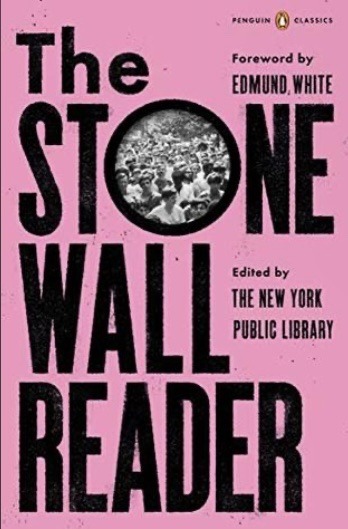
Essays, articles, and interviews detailing the importance of the Stonewall Uprising to queer States’ history.
Trans Liberation : Beyond Pink or Blue by Leslie Feinberg
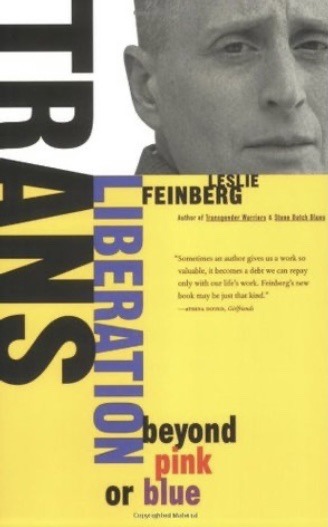
Collection of Feinberg’s speeches on the importance of Trans Liberation.
Sexuality and the Unnatural in Colonial Latin America by Zeb Tortorici
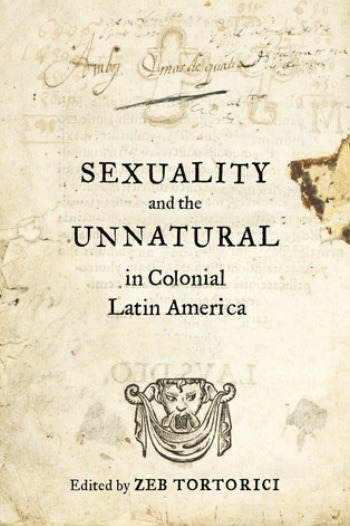
Exploration of sex and laws in Colonial Latin America under the Inquisition.
Exploring Masculinities : Identity, Inequality, Continuity and Change by C J Pascoe and Tristan Bridges
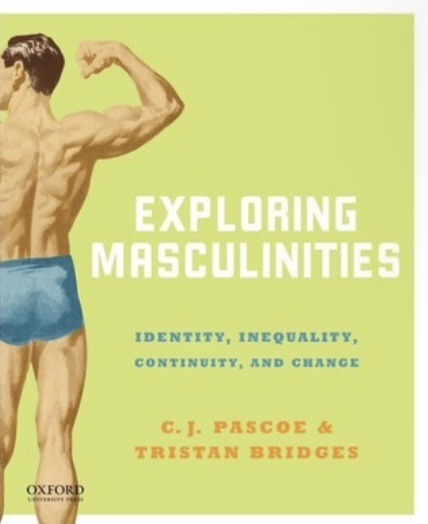
A history of masculinities in the States and how they affect our present.
Race Studies
Four Hundred Souls : A Community History of African America 1619-2019 by Ibram X Kendi and Keisha N Blain
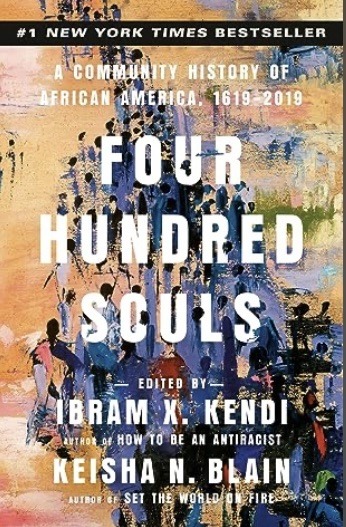
Collection of poems and essays detailing the history of African America.
White Trash : the 400-Year Untold History of Class in America by Nancy Isenberg
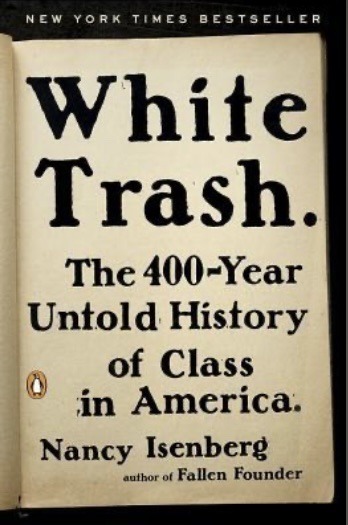
Best read in conjunction with White Fragility. History of class in the States with notes on how it’s affect changed depending on gender and race.
Historicizing Race by Marius Turda
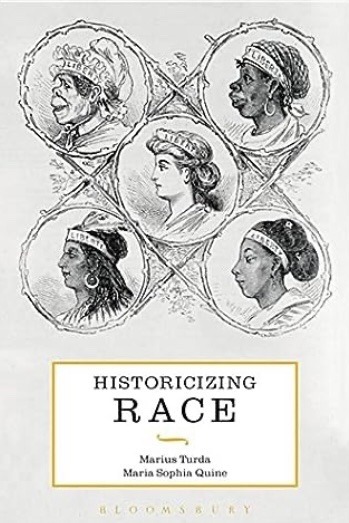
A history of how race has affected and been affected by every function of society, history, and “science”.
White Fragility : Why It’s So Hard for White People to Talk About Racism by Robin D’Angelo
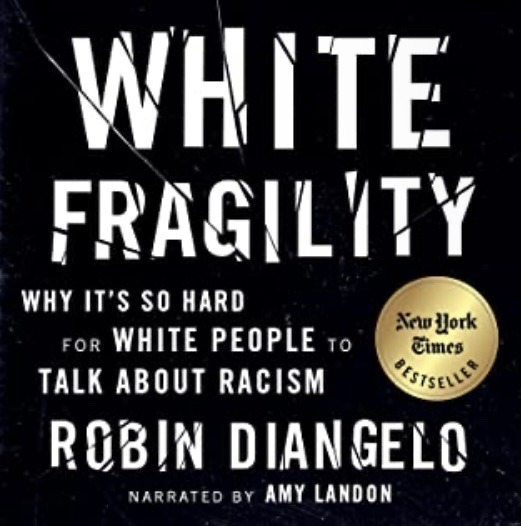
Discusses why race is a taboo subject in White America.
So You Want to Talk About Race by Ijeoma Oluo
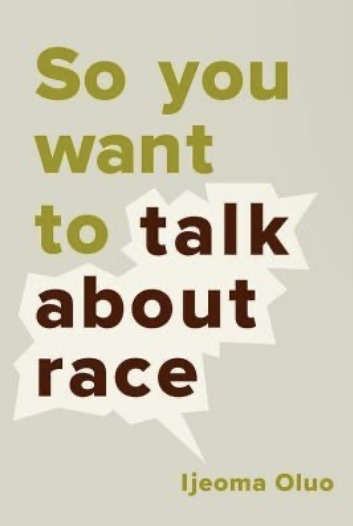
A personal experience with racism and the common questions and arguments that appear in this discussion.
Relationship Studies
Attached : The New Science of Adult Attachment and How It Can Help You Find and Keep Love by Amir Levine and Rachel Heller
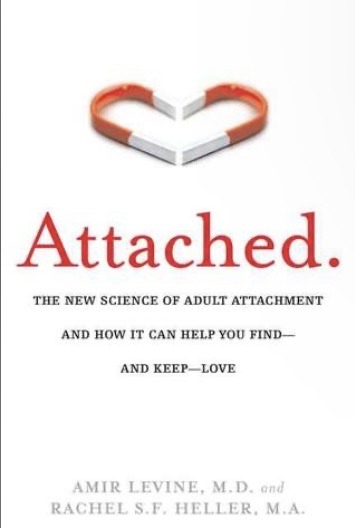
Reviews the four attachment styles and how they affect our interpersonal relationships.
1 note
·
View note
Text
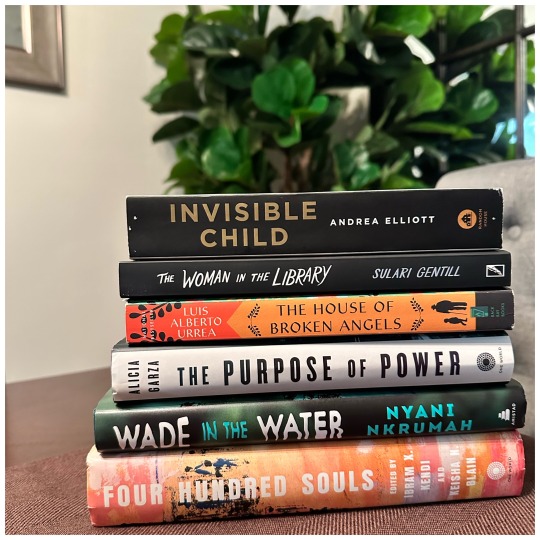
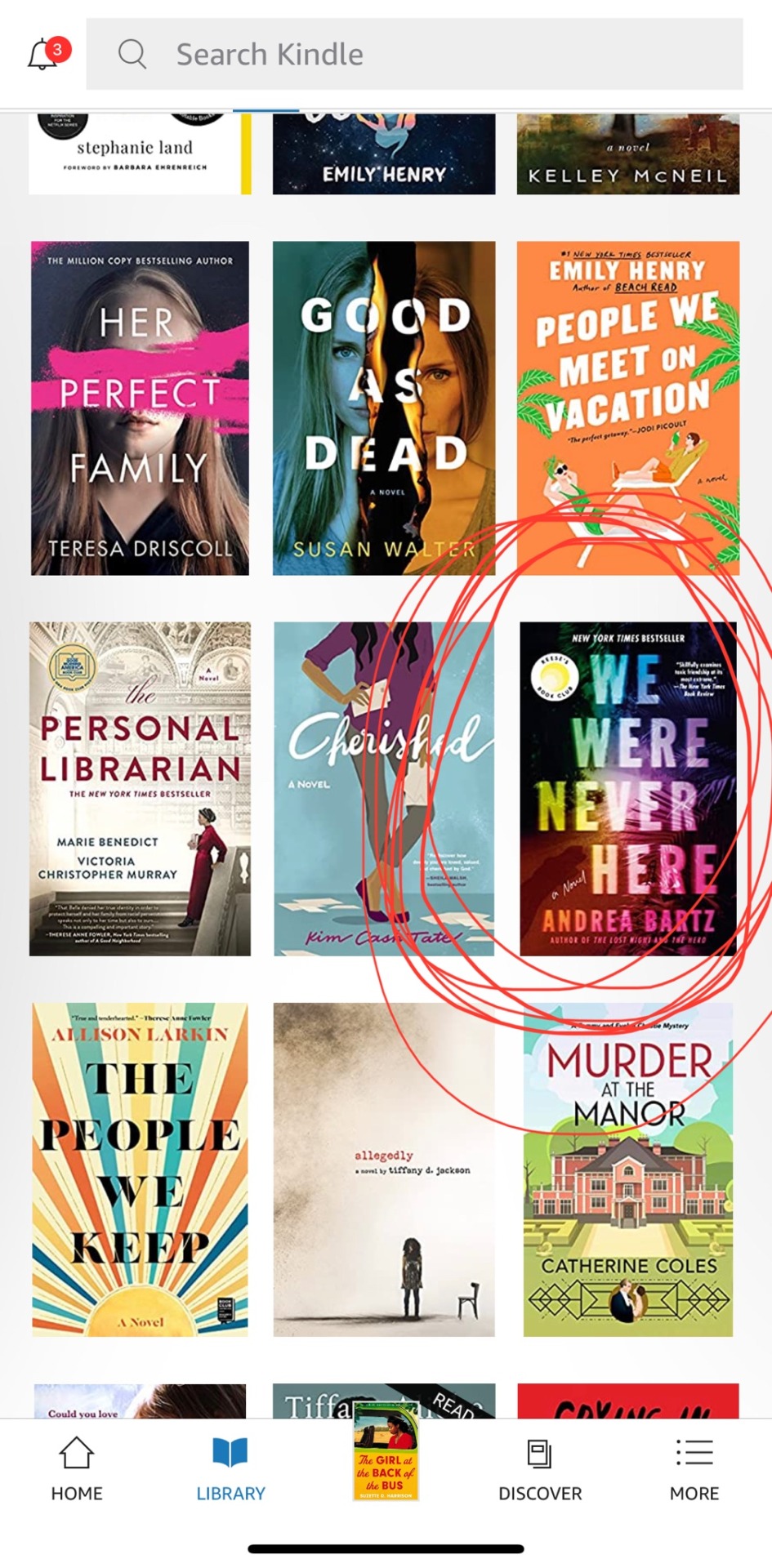
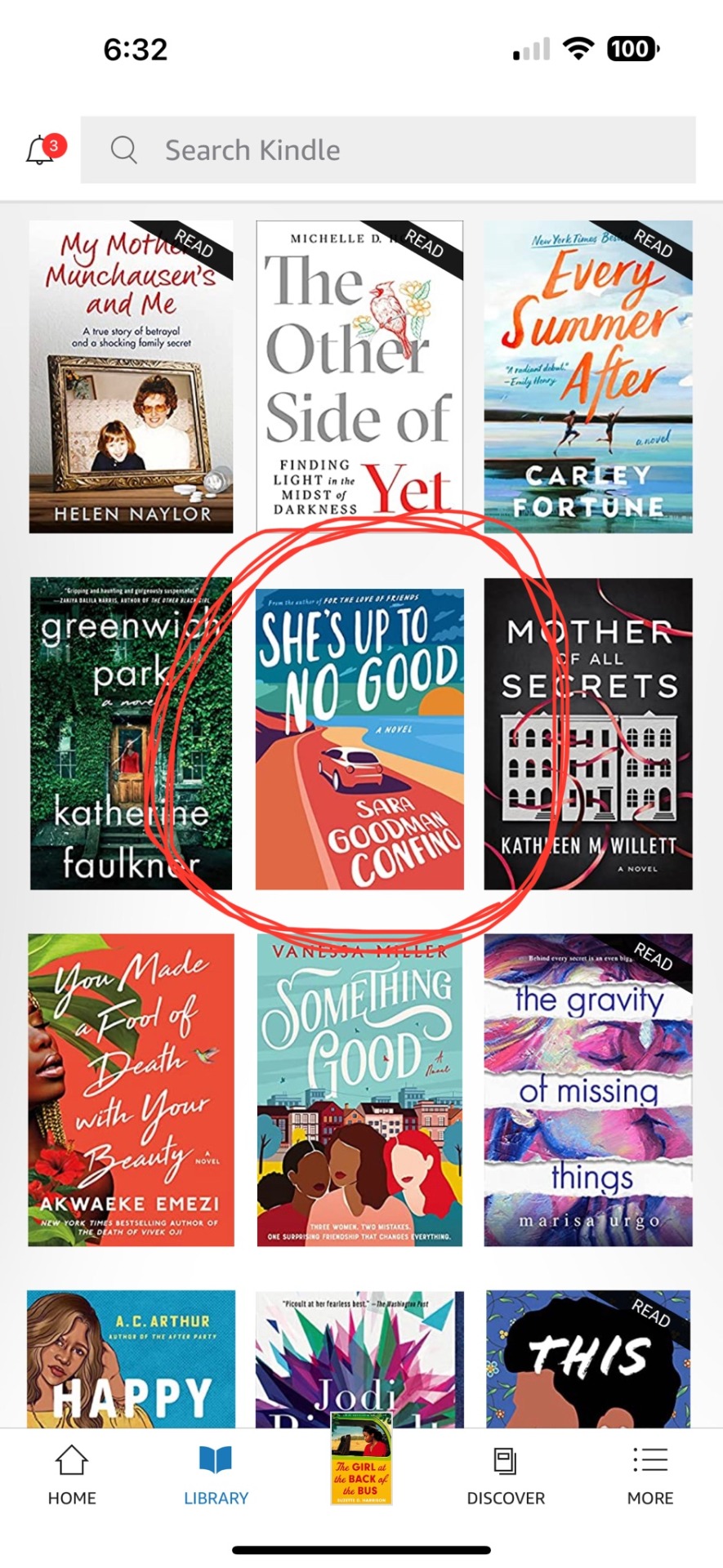
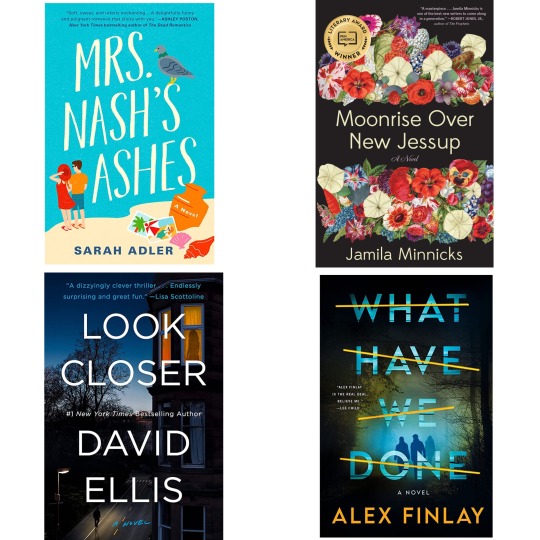
I really enjoyed today. Book festivals are so much fun! I especially loved the moderated author presentations where the authors talked with us about their books! 📚♥️
•
Here is my book haul from the Gaithersburg Book Festival. 😃
•
📕 Invisible Child: Poverty, Survival, & Hope in An American Cityby Andrea Elliot (I attended her author presentation and she signed my book)
📕 The Woman in the Library by Sulari Gentill (I purchased this book from the used book tent)
📕 The House of Broken Angels by Luis Alberto Urrea (I purchased this book from the used book tent)
📕 The Purpose of Power: How We Come Together When We Fall Apart by Alicia Garza (I purchased this book from the used book tent)
📕 Wade in the Water by Nyani Nkrumah (I attended her author presentation and she signed my book)
📕 Four Hundred Souls: A Community History of African America, 1619-2019 by Ibram X. Kendi and Keisha N. Blain (I purchased this book from the used book tent)
📕 We Were Never Here by Andrea Bartz (I attended her author presentation and I purchased her book on my Kindle)
📕 She’s Up To No Good by Sarah Goodman Confino (I attended her author presentation and I purchased her book on my Kindle)
📕 Mrs. Nash’s Ashes by Sarah Adler (I attended her author presentation and I will purchase her book)
📕 Moonrise over New Jessup by Jamila Minnicks (I attended her author presentation and I will purchase her book)
📕 Look Closer by David Ellis (I attended his author presentation and I will purchase his book)
📕 What Have We Done by Alex Finlay (I attended his author presentation and I will purchased his book)
0 notes
Text
Review: 'The Rebellious Life of Mrs. Rosa Parks,' starring Rosa Parks, LisaGay Hamilton, Carolyn Williamson Green, Lonnie McCauley, Jeanne Theoharis, Georgette Norman and Keisha Nicole Blain – CULTURE MIX
0 notes
Photo

Four Hundred Souls: A Community History of African America, 1619–2019 edited by Ibram X. Kendi & Keisha N. Blain Highly important & insightful to read. #FOURHUNDREDSOULS #BOOK #BOOKS #HISTORY #READ #READS #READING #ANTHOLOGY #BOOKSTAGRAM #BLACKHISTORYMONTH #BHM #READBLACK #LETSREAD #NOWREADING #CURRENTLYREADING https://www.instagram.com/p/CpAzOXruGkC/?igshid=NGJjMDIxMWI=
#fourhundredsouls#book#books#history#read#reads#reading#anthology#bookstagram#blackhistorymonth#bhm#readblack#letsread#nowreading#currentlyreading
1 note
·
View note
Quote
The moving tributes at Hamer’s funeral were a testament to the love and support she extended to all people — and especially to younger activists in the movement. Hamer refrained from authoritarian approaches and treated young people with the same respect she afforded older, more experienced leaders. She recognized that young people held within their hands great potential to lead the nation forward. Then, as now, generational differences threatened to cause divisions among activists in movements for social justice. Hamer’s unshakable belief in the power of young leaders to change society for the better is a model for our current moment.
Keisha N. Blain in Teen Vogue. Fannie Lou Hamer: The Civil Rights Icon Who Embraced Youth Power
Fannie Lou Hamer never bought into the generation wars.
Until I Am Free: Fannie Lou Hamer's Eduring Message to America by Keisha N. Blain
5 notes
·
View notes
Link
The case has largely been forgotten, in part because the investigation netted a conviction but never offered a clear motive—unlike the open white supremacy that motivated Till’s murder, the assassination of Martin Luther King Jr., and the 16th Street Baptist Church bombing.
On the morning of her graduation, Joetha was thinking about what lay ahead. “As soon as I graduate from college, Mama, things are going to be different for you,” Mrs. Love, in a later interview, recalled her saying. With her eyes set on the future, Joetha rushed off to the ceremony in her brand-new yellow dress.
Unease is exactly where Joetha’s story must take us. She was killed after what we are generally taught was the end of the civil-rights movement, after the country had undergone a transformation and the violence of places like Drew had been brought to heel by the tide of national attention. She was rural and poor, and her killers were not night riders but men who simply saw her as a life without value. She was a young, dark-skinned Black woman, living in a world where people like her were and are seen as less worthy of care and attention. Remembering her story means truly confronting ugly truths about American history and popular memory.
#Joetha Collier#Keisha N. Blain#The Atlantic#Fannie Lou Hamer#Mississippi#civil rights#content warning#racial violence#gun violence#hate crime cw#hate crimes
7 notes
·
View notes
Text
Flowers to Civil Rights and Voting Rights Activist Fannie Lou Hamer For #WomensHistoryMonth (LISTEN)
by Lori Lakin Hutcherson (@lakinhutcherson) We celebrate grassroots organizer, civil rights and voting rights activist Fannie Lou Hamer in today’s Daily Drop podcast. Our salute to Mississippi Freedom Democratic Party founder Hamer is based on the Thursday, March 24 entry in “A Year of Good Black News” Page-A-Day®️ Calendar for…

View On WordPress
#"Fannie Lou Hamer&039;s America"#"God’s Long Summer"#"The Speeches of Fannie Lou Hamer: To Tell It Like it Is"#"To Praise Our Bridges"#"Until I Am Free: Fannie Lou Hamer’s Enduring Message to America"#"Walk With Me: A Biography of Fannie Lou Hamer"#1964 Democratic Convention#Civil Rights Movement#Common#Fannie Lou Hamer#GBN Daily Drop Podcast#Kate Clifford Larson#Keisha N. Blain#Lori Lakin Hutcherson#Mississippi#Mississippi Freedom Democratic Party#SNCC#Voting Rights
17 notes
·
View notes
Photo

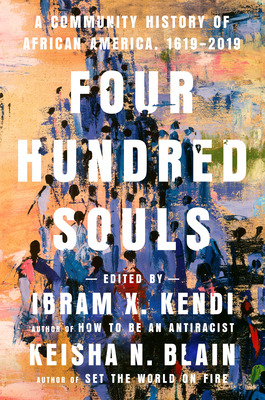
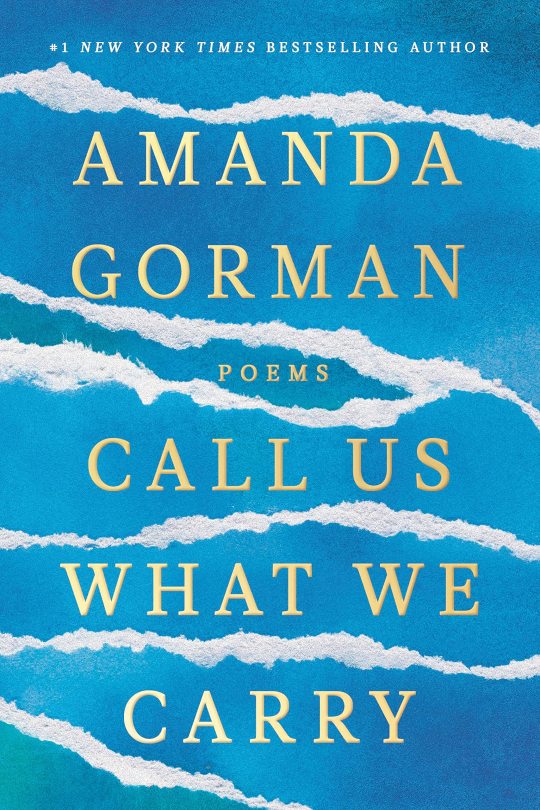
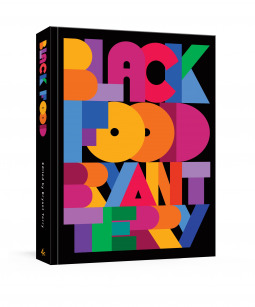
Black History Month: More Nonfiction Recommendations
Love is the Way by Michael B. Curry
As the descendant of slaves and the son of a civil rights activist, Bishop Michael Curry's life illustrates massive changes in our times. Much of the world met Bishop Curry when he delivered his sermon on the redemptive power of love at the royal wedding of Prince Harry and Meghan Markle at Windsor Castle. Here, he expands on his message of hope in an inspirational road map for living the way of love, illuminated with moving lessons from his own life. Through the prism of his faith, ancestry, and personal journey, Love Is the Way shows us how America came this far and, more important, how to go a whole lot further.
The way of love is essential for addressing the seemingly insurmountable challenges facing the world today: poverty, racism, selfishness, deep ideological divisions, competing claims to speak for God. This book will lead readers to discover the gifts they need in order to live the way of love: deep reservoirs of hope and resilience, simple wisdom, the discipline of nonviolence, and unshakable regard for human dignity.
Four Hundred Souls edited by Ibram X. Kendi & Keisha N. Blain
The story begins in 1619 - a year before the Mayflower - when the White Lion disgorges “some 20-and-odd Negroes” onto the shores of Virginia, inaugurating the African presence in what would become the United States. It takes us to the present, when African Americans, descendants of those on the White Lion and a thousand other routes to this country, continue a journey defined by inhuman oppression, visionary struggles, stunning achievements, and millions of ordinary lives passing through extraordinary history.
Four Hundred Souls is a unique one-volume “community” history of African Americans. The editors, Ibram X. Kendi and Keisha N. Blain, have assembled ninety brilliant writers, each of whom takes on a five-year period of that four-hundred-year span. The writers explore their periods through a variety of techniques: historical essays, short stories, personal vignettes, and fiery polemics. They approach history from various perspectives: through the eyes of towering historical icons or the untold stories of ordinary people; through places, laws, and objects. While themes of resistance and struggle, of hope and reinvention, course through the book, this collection of diverse pieces from ninety different minds, reflecting ninety different perspectives, fundamentally deconstructs the idea that Africans in America are a monolith - instead it unlocks the startling range of experiences and ideas that have always existed within the community of Blackness.
Call Us What We Carry by Amanda Gorman
Formerly titled The Hill We Climb and Other Poems, Amanda Gorman’s remarkable new collection reveals an energizing and unforgettable voice in American poetry. Call Us What We Carry is Gorman at her finest. Including “The Hill We Climb,” the stirring poem read at the inauguration of the 46th President of the United States, Joe Biden, and bursting with musical language and exploring themes of identity, grief, and memory, this lyric of hope and healing captures an important moment in our country’s consciousness while being utterly timeless.
Black Food by Bryant Terry
In this stunning and deeply heartfelt tribute to Black culinary ingenuity, Bryant Terry captures the broad and divergent voices of the African Diaspora through the prism of food. With contributions from more than 100 Black cultural luminaires from around the globe, the book moves through chapters exploring parts of the Black experience, from Homeland to Migration, Spirituality to Black Future, offering delicious recipes, moving essays, and arresting artwork.
#black history month#black history#Black Authors#Nonfiction Reading#nonfiction#nonfiction books#nonfiction reads#library books#Reading Recs#reading recommendations#Book Recommendations#book recs#TBR pile#tbr#Want To Read#to read#book tumblr#Booklr#library blog#book blog
0 notes
Link
By Keisha N. Blain
This post is the second of a series on Afro-Asia in which I explore the myriad political strategies, alliances, and cultural connections linking people of African descent and persons of Asian descent. In part one, I examine the deep roots of Afro-Asia. In this second post, I interview Dr. Yuichiro Onishi about his first book, Transpacific Antiracism: Afro-Asian Solidarity in 20th Century Black America, Japan and Okinawa (New York University Press in 2013). Dr. Onishi is Associate Professor of African American and African Studies and Asian American Studies at the University of Minnesota, Twin Cities.
Keisha N. Blain: What are the factors and/or motivations that led you to write Transpacific Antiracism?
Yuichiro Onishi: In retrospect, my sojourn in Japan in the mid-1990s, after graduating from Macalester College, set the course; this experience pushed me in a direction toward the transpacific approach to “race studies.” Then I was working in a warehouse putting price tags on brand name clothing imported from Italy. This warehouse district was in the City of Kawasaki, just outside of Tokyo, located in the heart of the heavy industrial area. Working near my section were migrant workers from various parts of Southeast Asia. Also, just outside of this warehouse district was the segregated neighborhood of Zainichi Koreans, Korean residents of Japan whose descendants were brought to Japan as colonial subjects during the first half of the twentieth century. All of this “difference” in Japan was new to me. I knew little to nothing about the growing immigrant population in Japan, let alone the histories of “Japan’s minorities,” such as Korean residents of Japan, indigenous people called Ainu, and Okinawans. As I became cognizant of Japan’s “racial history,” I started to call into question the myth of Japan as a homogeneous nation.
My encounter with “difference” also brought me back to what I studied in college—European immigrants and white American workers’ racial formation—how they participated in the construction of whiteness through violence and discrimination against Blacks as a way of dealing with their own social and economic miseries resulting from the rise and expansion of industrial capitalism. Rather than crossing the color line in solidarity with Black workers to usher in a new society, these workers defended their property interests in whiteness, thereby making the labor movement an agent of racial status quo and white supremacy rather than of human emancipation. At the time I was re-reading David Roediger’s The Wages of Whiteness. I began drawing a parallel between white working class racism, including the story of how Irish immigrant workers became white, and Japanese workers’ racial construction of national identity through discrimination against and contempt toward Asian workers. An affinity between whiteness and Japaneseness piqued my curiosity. Upon entering the Graduate Program in History at the University of Minnesota to work with David Roediger I began considering how I might develop a research topic in the context of U.S.-Japan relations to get at this dynamic of race-making on both sides of the Pacific. Although my ideas were still inchoate, I was interested in unpacking instances of opposition to “global whiteness”—how constituents of social movements in Black America and Japan, by way of forging cross-racial and transnational solidarity, developed an argument against the theory and practice of white supremacy. So my project evolved from there—exploring connections between Black America and Japan in the context of radical movements.
Also, during my sojourn in Japan I regularly went to a progressive resource center called Pacific-Asia Resource Center, or PARC (pronounced paruku) in Tokyo. PARC was a product of the Japanese New Left (see the back issues of its English-language publication AMPO: Japan-Asia Quarterly Review). Consistently activists and intellectuals associated with PARC engaged in the localized projects of antiracism, anticolonialism, and anti-imperialism, as well as transnational activism to combat neoliberal globalization in solidarity with peoples and activists of the Global South. During the Vietnam War, those associated with PARC joined the peace movement led by the antiwar organization called Beheiren (Bentonamu ni Heiwa o Shimin Rengo, or Citizens’ League for Peace in Vietnam). In my book, I write about Beheiren as one of the collectives that shaped the work of transpacific antiracism. Personally, this inroad into the space of Japanese radical movements opened up a new horizon, especially in terms of honing a critical perspective. I located the presence of “another Japan” that is connected to various radical movements. When I frequented this place in the mid-1990s, Muto Ichiyo, one of the leading New Left intellectuals, if I recall, was teaching an English language seminar using Malcolm X’s autobiography.
Read more...
https://www.aaihs.org/on-transpacific-racism-an-interview-with-yuichiro-onishi-2/
#Keisha N. Blain#Yuichiro Onishi#Racism#Discrimination#United States#Japan#Japanese#Afro Asia#Solidarity#Okinawa#Okinawan
26 notes
·
View notes
